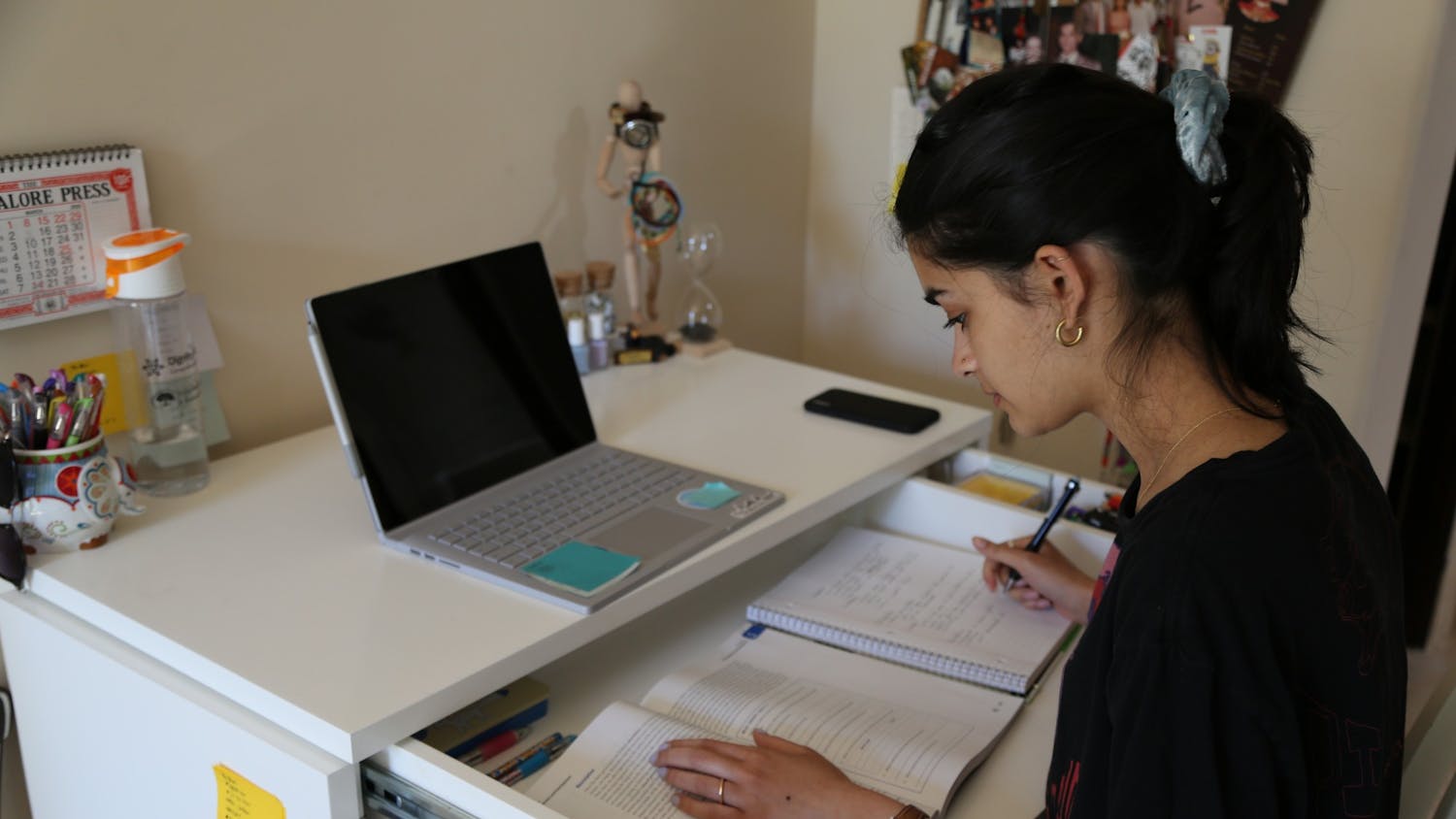While many students worry about how their academic plans will be affected by COVID-19, one group in particular — international students and others who have been allowed to remain in on-campus housing — face unique concerns. After the College announced that students can only live on campus this summer if enrolled in online classes, some international students voiced concern about their options for housing next term.
On April 24, Dean of the College Kathryn Lively wrote to students in residence this spring that only those who enroll in classes this summer can continue to live in campus housing. Since then, the policy has stirred confusion and panic among the 169 students currently on campus — down from the 184 students living on campus at the beginning of the term. Most of these students are international students whose default D-Plan designates summer as an off term due to visa guidelines.
A team of staff from the Office of Financial Aid and the Office of Student Affairs, called the “care team,” has been created to address housing concerns for students on campus in consultation with the Office of Visa and Immigration Services. The team asked students on campus to fill out a form by May 26 to elaborate on “barriers or obstacles that prevent [them] from changing [their] D-Plan and/or leaving campus by June 10th.”
Lively wrote in an email statement to The Dartmouth that “[the College recognizes] that this may create some concerns for students, who would prefer to be here but not be enrolled in classes for any number of reasons.” The statement added that the College recommends “international students, in particular, work closely with their undergraduate deans and or [the Office of Visa and Immigration Services] to insure their academic continuity and legal standing.”
Associate dean of residential life Mike Wooten said that the uncertain nature of the COVID-19 pandemic makes it impossible to accommodate unenrolled students this summer.
He wrote in an email statement to The Dartmouth that “the ongoing public health concerns, the fact that the College is still operating remotely and [the fact] that we don't know yet what fall term will bring” have contributed to the College’s decision that only students enrolled in classes will be allowed to remain on campus.
In the April email, Lively wrote to students on campus that staff from the Office of Residential Life would reach out to students individually to “begin a conversation about [their] options.” House community assistant directors then met with students to check in with each student.
Roman Olavarria ’23, a student from California who is currently living on campus, said he is “a little frustrated” with the College’s decision-making. He added that he found it “weird” that the College released its decision and only seemed to ask students about their situations afterward.
Ana Sumbo ’22, an international student from Angola, said that she “she got a different feeling” about the summer housing policy when she talked to her house assistant director than she did from Lively’s email, giving her the impression that some aspects of the policy may not have been finalized. She said that she is now looking for off-campus housing, and she is frustrated over what initially seemed like ambiguity surrounding her eligibility for summer housing.
“As an international student, it is incredibly difficult to make plans not knowing in advance if summer housing can be provided,” she said. “I cannot make travel plans overnight. The longer we wait, the more flights will cost.”
Olavarria, who said he can neither go back home in the summer nor enroll in classes because of his plan for completing his major, said he immediately started to look for off-campus housing when he received the email from Lively.
He said that although he managed to secure a place to stay in a week and a half and found a way to pay for it, the process was “very stressful.”
He added that he was advised by his house assistant director not to enroll in classes for the sole purpose of increasing his chances of securing summer housing.
“[Doing so] would ruin my D-Plan and my major track,” he said. “[Summer housing] is a short-term issue that I could take care of immediately, but [changing my D-Plan] would have long-lasting effects during my Dartmouth career.”
Sumbo said that changing her D-Plan just to adapt to the College’s summer housing policy might bring unintended implications to her visa standing and educational planning.
“It is difficult to make an at-whim decision for someone on a visa,” she said. “[Enrolling in summer classes] wouldn't be beneficial to me at all because it would completely affect my planning for my education.”
She also expressed concern about paying another full term’s tuition for online classes.
Xuru Peng ’23, who is from China, said that she decided to change her D-Plan to enroll in summer classes last week because of restrictions on air travel to China. She noted that it was the difficulty she would face getting back home, rather than the College’s summer housing policy, that influenced her decision.
Peng added that she found her summer internship opportunities to be limited, and she was able to find three summer classes at Dartmouth that suit her academic career.
On May 21, the care team wrote in an email to students living on campus this term that students who are currently living on campus but not taking classes during the summer must move out of their current rooms by June 10.
All eligible summer residents will be assigned space in the McLaughlin Cluster, where air conditioning is provided, according to another email from the care team to students in-residence whose D-Plan is “on” for the summer.
Iva Devic ’22, who is from Bosnia-Herzegovina, said that she is currently working with her friends and her Greek house to find financial aid-friendly accommodations for the summer. She noted that since her Form I-20, a certificate for her F-1 student visa, is “active,” the federal government will allow her to remain in the U.S., and she will be able to live off campus this summer. She added, however, that without access to resources like Safety and Security, living off campus alone can be lonelier and less safe than living on campus.




